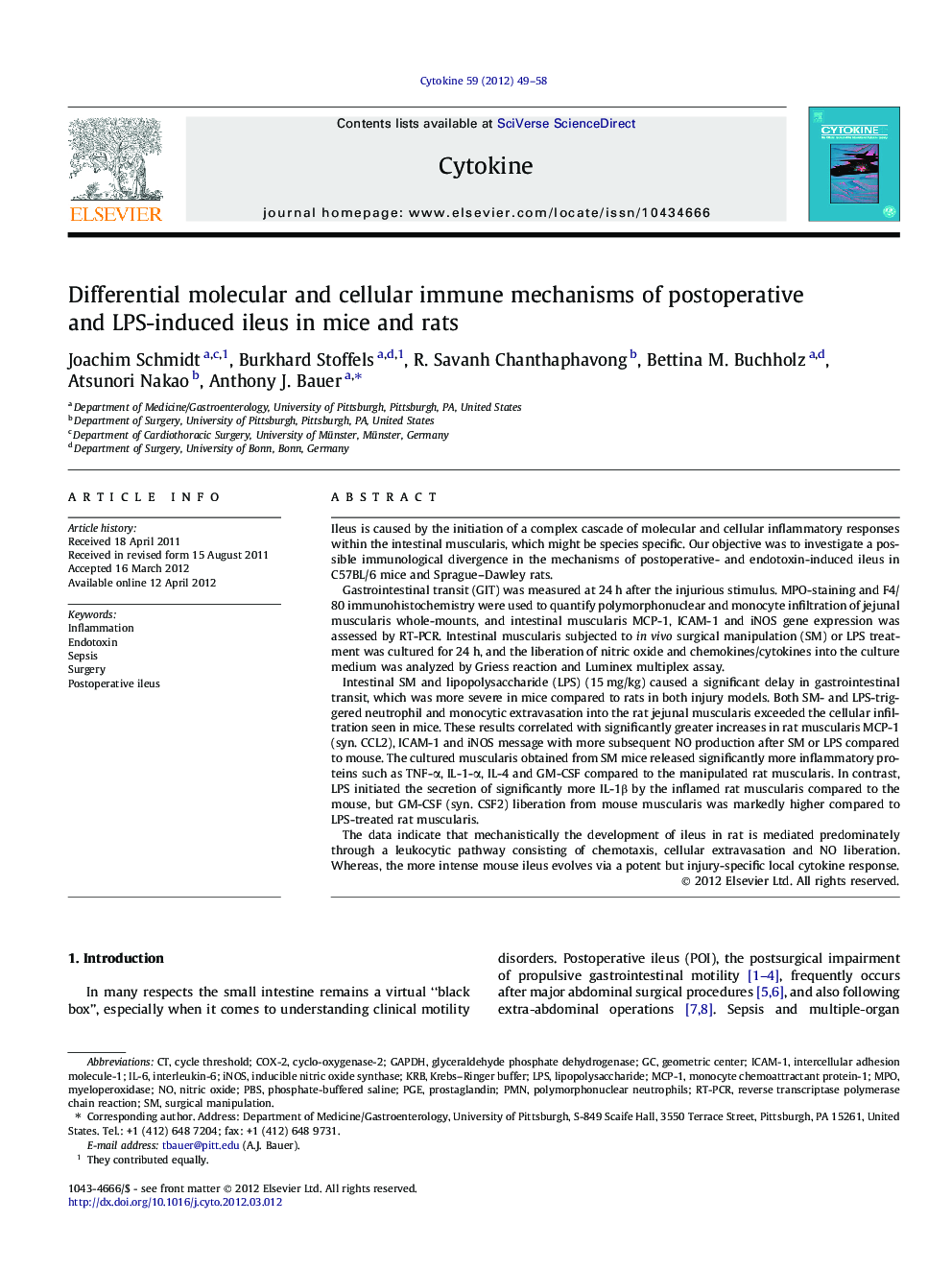| کد مقاله | کد نشریه | سال انتشار | مقاله انگلیسی | نسخه تمام متن |
|---|---|---|---|---|
| 2794457 | 1155285 | 2012 | 10 صفحه PDF | دانلود رایگان |

Ileus is caused by the initiation of a complex cascade of molecular and cellular inflammatory responses within the intestinal muscularis, which might be species specific. Our objective was to investigate a possible immunological divergence in the mechanisms of postoperative- and endotoxin-induced ileus in C57BL/6 mice and Sprague–Dawley rats.Gastrointestinal transit (GIT) was measured at 24 h after the injurious stimulus. MPO-staining and F4/80 immunohistochemistry were used to quantify polymorphonuclear and monocyte infiltration of jejunal muscularis whole-mounts, and intestinal muscularis MCP-1, ICAM-1 and iNOS gene expression was assessed by RT-PCR. Intestinal muscularis subjected to in vivo surgical manipulation (SM) or LPS treatment was cultured for 24 h, and the liberation of nitric oxide and chemokines/cytokines into the culture medium was analyzed by Griess reaction and Luminex multiplex assay.Intestinal SM and lipopolysaccharide (LPS) (15 mg/kg) caused a significant delay in gastrointestinal transit, which was more severe in mice compared to rats in both injury models. Both SM- and LPS-triggered neutrophil and monocytic extravasation into the rat jejunal muscularis exceeded the cellular infiltration seen in mice. These results correlated with significantly greater increases in rat muscularis MCP-1 (syn. CCL2), ICAM-1 and iNOS message with more subsequent NO production after SM or LPS compared to mouse. The cultured muscularis obtained from SM mice released significantly more inflammatory proteins such as TNF-α, IL-1-α, IL-4 and GM-CSF compared to the manipulated rat muscularis. In contrast, LPS initiated the secretion of significantly more IL-1β by the inflamed rat muscularis compared to the mouse, but GM-CSF (syn. CSF2) liberation from mouse muscularis was markedly higher compared to LPS-treated rat muscularis.The data indicate that mechanistically the development of ileus in rat is mediated predominately through a leukocytic pathway consisting of chemotaxis, cellular extravasation and NO liberation. Whereas, the more intense mouse ileus evolves via a potent but injury-specific local cytokine response.
► Ileus is caused by molecular and cellular inflammatory responses in the gut wall.
► Postoperative- and LPS-induced ileus was more severe in mice compared to rats.
► Ileus in rat was mediated predominately via a leukocytic pathway.
► Mouse ileus evolved via a potent, injury-specific local cytokine response.
Journal: Cytokine - Volume 59, Issue 1, July 2012, Pages 49–58